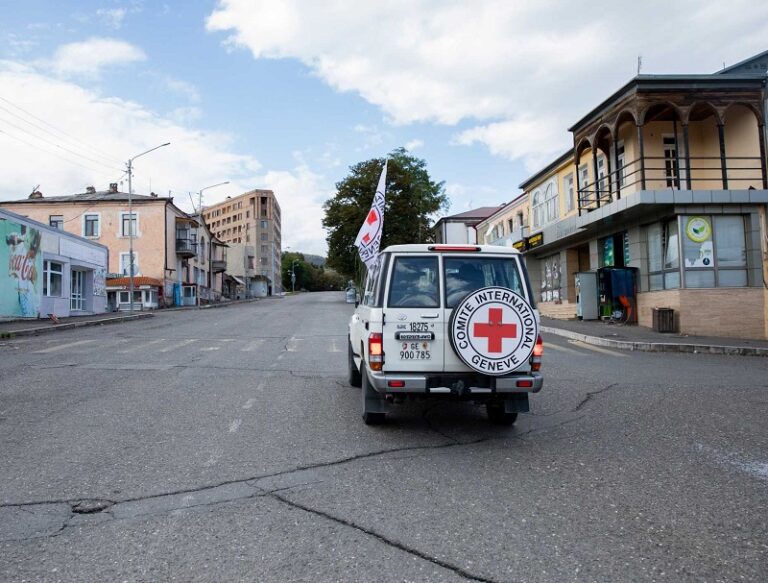Deadline: 21 March 2024
Applications are now open for the ETH4D Grants for Humanitarian Action Challenges (HAC) 2024 . The aim of the ETH4D Humanitarian Action Challenges is to support project-based research between ETH Zurich and EPFL researchers and the International Committee of the Red Cross (ICRC) to leverage science and technology for greater impact in humanitarian action.
Proposals must address a clearly defined research question that aims to increase the impact of humanitarian action. Humanitarian Action Challenges must develop, test, evaluate or implement an innovative product, policy or service - involving a technology that responds to a specific humanitarian challenge.
https://googleads.g.doubleclick.net/pagead/ads?gdpr=0&client=ca-pub-7238845118856992&output=html&h=280&slotname=3344323800&adk=1115963448&adf=2986054797&pi=t.ma~as.3344323800&w=742&fwrn=4&fwrnh=100&lmt=1707219677&rafmt=1&format=742×280&url=https%3A%2F%2Fopportunitydesk.org%2F2024%2F01%2F08%2Feth4d-humanitarian-action-challenges-hac-grants-2024%2F&fwr=0&fwrattr=true&rpe=1&resp_fmts=3&wgl=1&uach=WyJXaW5kb3dzIiwiMTAuMC4wIiwieDg2IiwiIiwiMTA2LjAuNDk5OC42MSIsbnVsbCwwLG51bGwsIjY0IixbWyJOb3RfQSBCcmFuZCIsIjguMC4wLjAiXSxbIkNocm9taXVtIiwiMTIwLjAuNjA5OS4yMTciXSxbIk9wZXJhIEdYIiwiMTA2LjAuNDk5OC42MSJdXSwwXQ..&dt=1707219673585&bpp=1&bdt=1075&idt=315&shv=r20240201&mjsv=m202401300101&ptt=9&saldr=aa&abxe=1&cookie=ID%3D982bccc1650bbfbd%3AT%3D1702979975%3ART%3D1707219674%3AS%3DALNI_MYUpDHIHjCvdAd9qpjwkIAoHR_Dmw&gpic=UID%3D00000ce6a34beb5d%3AT%3D1702979975%3ART%3D1707219674%3AS%3DALNI_Mbd8_6PMZZnaNxdD61mpTbhPuKlmg&eo_id_str=ID%3D41a60e3297e4b646%3AT%3D1706710309%3ART%3D1707219674%3AS%3DAA-AfjbY6WJEKbhZwY_O3PaRUgmV&prev_fmts=0x0%2C728x90%2C1455x696%2C324x250&nras=2&correlator=3954487195932&frm=20&pv=1&ga_vid=669982640.1702979975&ga_sid=1707219674&ga_hid=1693418475&ga_fc=1&u_tz=-60&u_his=1&u_h=768&u_w=1366&u_ah=728&u_aw=1366&u_cd=24&u_sd=0.9&dmc=8&adx=169&ady=1429&biw=1455&bih=696&scr_x=0&scr_y=0&eid=44759875%2C44759926%2C44759837%2C31080836%2C95322183%2C95324154%2C95324161&oid=2&psts=AOrYGsmRR3r8RFM9G26PahJlxlt3s42Sc4TieptA7WWizxmjIO2fbINZyG_X3JIH9plK0pklQe2KE2WZ_r_9&pvsid=2363141059441539&tmod=627561207&uas=0&nvt=1&ref=https%3A%2F%2Fwww.google.com%2F&fc=1920&brdim=0%2C0%2C0%2C0%2C1366%2C0%2C0%2C0%2C1472%2C696&vis=1&rsz=%7Cm%7CpEebr%7Cp&abl=XS&pfx=0&fu=1152&bc=31&bz=0&psd=W251bGwsbnVsbCxudWxsLDNd&ifi=3&uci=a!3&btvi=1&fsb=1&dtd=4250
Grant
- The value of the grant is between 50 and 300 kCHF.
Matching Funds: The lead applicant and potential co-applicants from the ETH domain (excluding EPFL) must provide matching funds corresponding to at least 25% of the requested grant. Matching funds can come from third parties or from faculty reserves. Personnel costs for doctoral students, postdoctoral fellows and research assistants in Switzerland that are not funded by the grant count as matching funds.
Eligibility
The team must consist of at least one ETH principal candidate with a doctorate and at least one ICRC partner.
- It is encouraged (but not obligatory) to have a partner from a low- or lower-middle-income country, one from EPFL (which allows for a more flexible approach). parallel submission at EPFL ) or a partner from another humanitarian organisation. Partners from the rest of the ETH domain (PSI, WSL, Empa and Eawag) are welcome as co-applicants.
- If the main applicant is not an ETH professor, a letter of commitment from the ETH host professor or the person in charge of the unit must accompany the proposal, indicating their financial contribution to the project.
Application
https://googleads.g.doubleclick.net/pagead/ads?gdpr=0&client=ca-pub-7238845118856992&output=html&h=186&slotname=3100905470&adk=2732908632&adf=40938407&pi=t.ma~as.3100905470&w=742&fwrn=4&lmt=1707219677&rafmt=11&format=742×186&url=https%3A%2F%2Fopportunitydesk.org%2F2024%2F01%2F08%2Feth4d-humanitarian-action-challenges-hac-grants-2024%2F&wgl=1&uach=WyJXaW5kb3dzIiwiMTAuMC4wIiwieDg2IiwiIiwiMTA2LjAuNDk5OC42MSIsbnVsbCwwLG51bGwsIjY0IixbWyJOb3RfQSBCcmFuZCIsIjguMC4wLjAiXSxbIkNocm9taXVtIiwiMTIwLjAuNjA5OS4yMTciXSxbIk9wZXJhIEdYIiwiMTA2LjAuNDk5OC42MSJdXSwwXQ..&dt=1707219673585&bpp=1&bdt=1075&idt=352&shv=r20240201&mjsv=m202401300101&ptt=9&saldr=aa&abxe=1&cookie=ID%3D982bccc1650bbfbd%3AT%3D1702979975%3ART%3D1707219674%3AS%3DALNI_MYUpDHIHjCvdAd9qpjwkIAoHR_Dmw&gpic=UID%3D00000ce6a34beb5d%3AT%3D1702979975%3ART%3D1707219674%3AS%3DALNI_Mbd8_6PMZZnaNxdD61mpTbhPuKlmg&eo_id_str=ID%3D41a60e3297e4b646%3AT%3D1706710309%3ART%3D1707219674%3AS%3DAA-AfjbY6WJEKbhZwY_O3PaRUgmV&prev_fmts=0x0%2C728x90%2C1455x696%2C324x250%2C742x280&nras=2&correlator=3954487195932&frm=20&pv=1&ga_vid=669982640.1702979975&ga_sid=1707219674&ga_hid=1693418475&ga_fc=1&rplot=4&u_tz=-60&u_his=1&u_h=768&u_w=1366&u_ah=728&u_aw=1366&u_cd=24&u_sd=0.9&dmc=8&adx=169&ady=2342&biw=1455&bih=696&scr_x=0&scr_y=0&eid=44759875%2C44759926%2C44759837%2C31080836%2C95322183%2C95324154%2C95324161&oid=2&psts=AOrYGsmRR3r8RFM9G26PahJlxlt3s42Sc4TieptA7WWizxmjIO2fbINZyG_X3JIH9plK0pklQe2KE2WZ_r_9&pvsid=2363141059441539&tmod=627561207&uas=0&nvt=1&ref=https%3A%2F%2Fwww.google.com%2F&fc=1920&brdim=0%2C0%2C0%2C0%2C1366%2C0%2C0%2C0%2C1472%2C696&vis=1&rsz=%7Cm%7Cpebr%7Cp&abl=XS&pfx=0&fu=1152&bc=31&bz=0&psd=W251bGwsbnVsbCxudWxsLDNd&ifi=4&uci=a!4&btvi=2&fsb=1&dtd=4297
Registration documents include:
- Registration form filled
- Bibliography
- Work packages and milestones shown in a Gantt chart.
- Budget which must include matching funds.
- Letter of support from the ICRC, demonstrating long-term commitment to the project and signed by both the ICRC project manager and the ICRC project sponsor (usually head of unit). The letter should clearly articulate the issue to be addressed in the project, its relevance to the organisation and the contributions (staff time and/or financial, if applicable) that the partner is willing to make to the project.
- CVs of all partners involved (max. 2 pages per person).
Consult the Guidelines for Challenges in Humanitarian Action before signing up.
All application documents must be written in English and sent electronically (in a single PDF file) in the online form.


